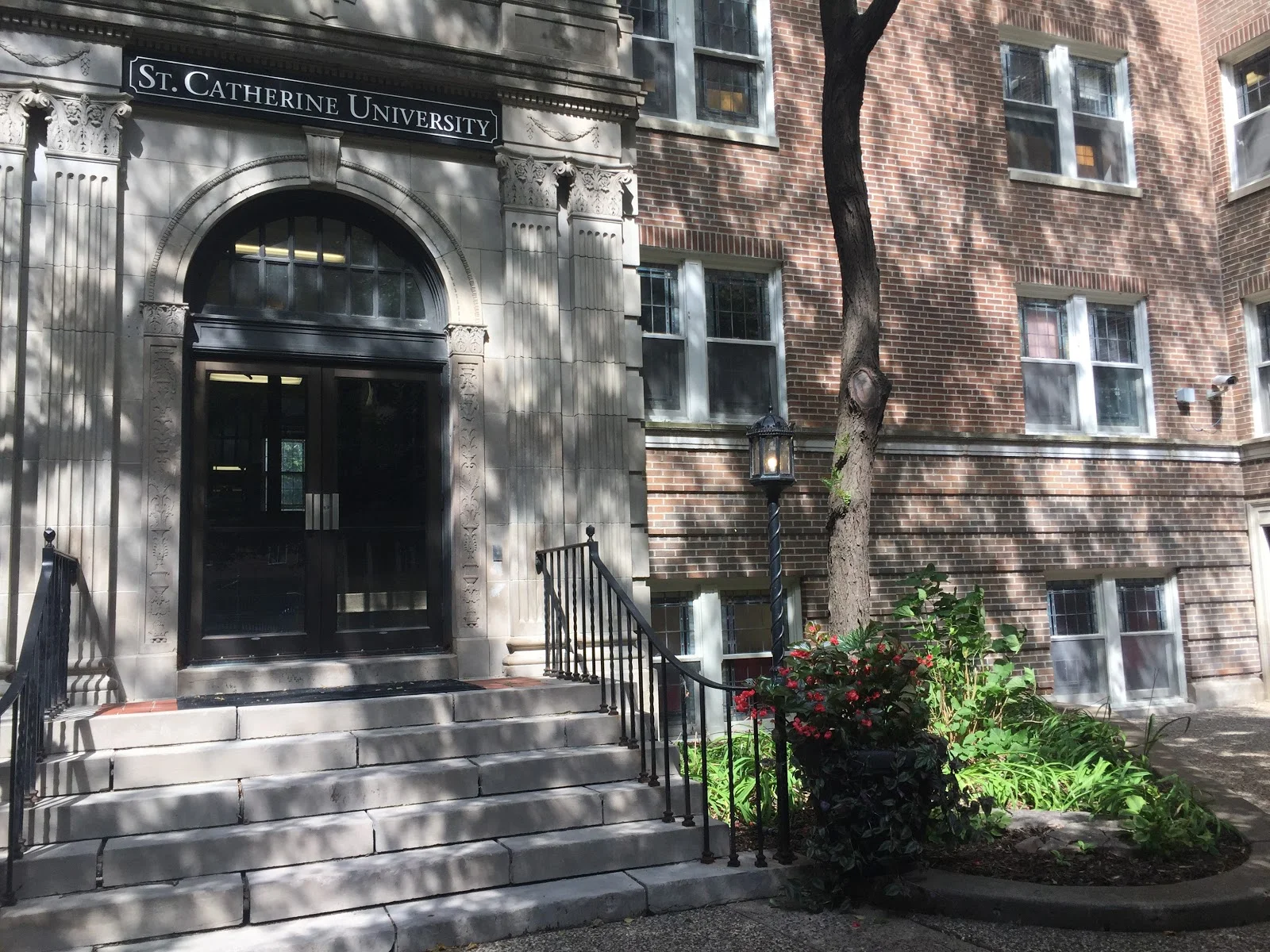St. Kate’s Addresses Sexual Assault Reports on Campus
St. Catherine University’s Public Safety and Residence Life Directors have collaborated with Title IX Coordinators to address a series of sexual assaults that occured on campus during the beginning of spring semester. A campus-wide safety alert, sent by Title IX Coordinator Sarah Schnell on February 27, stated that she received three reports of assault that impacted St. Kate’s community members throughout the previous month. Each person who reported an assault knew their assailant previously. Two assailants were from Tinder, a popular dating app for adults.
St. Kate’s Title IX policies define sexual assault as “having or attempting to have sexual intercourse or sexual contact with another individual without consent.” The prohibited conduct often includes the use or threat of force or coercion. Heidi Anderson-Isaacson, Director of Residence Life, confirmed that the sexual assaults occurred in the dorms and emphasized the anomaly of multiple reports on campus within a short period of time.
“We are really trying to limit anything we share about the particular incidents themselves,” Anderson-Isaacson explained in an interview. “We want to really limit the number of people who know on campus, because what we really want is to honor the privacy...so that we have a solid reputation of keeping that information private [and] more students will feel comfortable coming to us. We need to take that seriously so that we...minimize anything that would potentially lead to people figuring out who might have been the survivor of that incident.”
The safety reminder stated that the high number of reported assaults within a short period of time prompted a campus-wide communication. Victor Juran, Assistant Director of Public Safety, upheld that the assaults had no connection and did not warrant the release of additional information.
“Public Safety and Residence Life take student safety very seriously and respond to all reported issues,” Juran stated. “Per federal law, Public Safety would alert the campus if we believed there was an ongoing threat to the community. Additionally, we always aim to respect the privacy of...survivors who often request confidentiality.”
Under Title IX policies, the university requires all employees with responsibility for student welfare to report information about any incident of sexual assault involving a community member, with the exception of those required by law to maintain confidentiality. All reports must be directed to the Title IX Coordinator or one of two Deputy Coordinators. Title IX requires that all information relating to a sexual assault report remain confidential and available strictly to university officials assisting in the investigation.
Anderson-Isaacson notes that Resident Assistants are usually the first point of contact following a sexual assault. “That's who the students are [typically] most comfortable speaking with...somebody who is an upper-level student with authority, but who also has that relationship” she stated. “It is really about following the survivor and what they feel most comfortable with.”
Resident Assistants learn strategies for responding to sexual assault, harassment, and misconduct reports during an intense two-week summer training. They continue to develop their skills during regular meetings and monthly inservices.
“A lot of times, what students see when they live on the [residence] floors are the fun things, like the programming, bulletin boards, door decorations, and community building,” Anderson-Isaacson reflected. “What students do not see are the bigger issues that [Resident Assistants] are working through, like helping and assisting students...who are survivors of a sexual or domestic assault.”
Schnell described a collaborative examination of the university’s responses to sexual assaults with an emphasis on improving communication processes.
“We know [that] members of our campus community are interested in sexual assault and interpersonal violence awareness, and we actively seek to collaborate with those groups to support awareness efforts. My hope would be that student groups, staff and faculty can work together to create a collaborative program for the university around these topics to increase awareness. We have started this work already and will continue to do so.”
Juran concurs with the importance of community-wide educational opportunities as a constructive response to the sexual assault reports. He identifies his primary goal as creating an environment in which survivors feel supported and reporting is encouraged.
“Safety is, and needs to be, a high priority,” Juran stated. “A few ways Public Safety is addressing this is by providing self-defense classes for students and partnering with other groups on campus to provide programming about sexual assault awareness and prevention.”
Schnell urged all St. Kate’s community members to show unified support for survivors of sexual assault. “[They] should be believed and know it is never their fault. Unfortunately, we live in a world that does not like to talk about sexual assault, but it cross all races, genders, races, religions and economic backgrounds.”
She explained that trainings must also encourage bystanders to take a more active role in preventing sexual assault. “There are protections that individuals can take, but sexual assault can still happen. As a bystander, students can learn ways to step in and give the person [that] they are concerned about a chance to leave the situation.”
The campus-wide safety reminder concluded with a call for the St. Kate’s community to come together in collaborative practice of personal safety.
“We recommend everyone -- students, faculty and staff -- take the time to educate themselves about the issue and seek out programming both on and off campus that gives them strategies to keep themselves safe,” Juran asserted. “We also encourage students to attend the self defense classes we offer. We have a great community at St. Kate's that is safe and welcoming because we all contribute to making it so.”






